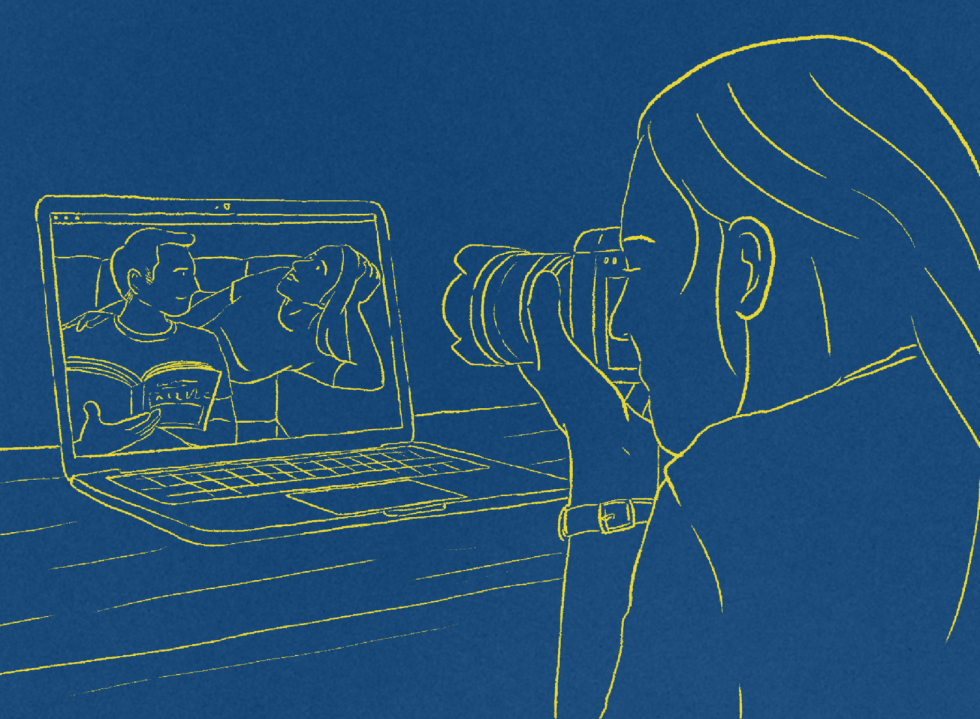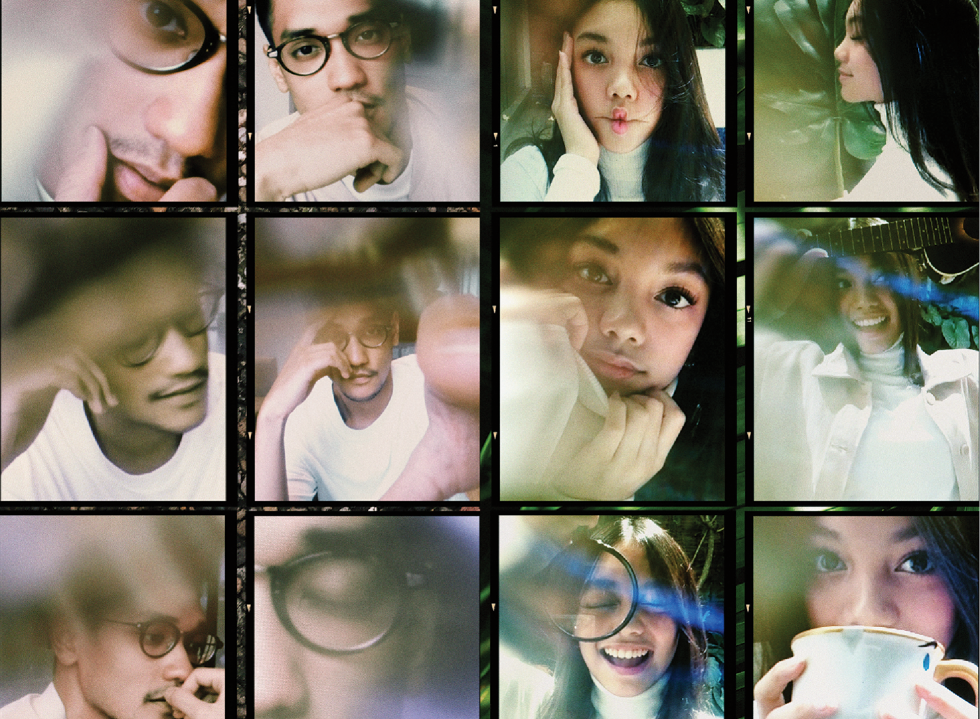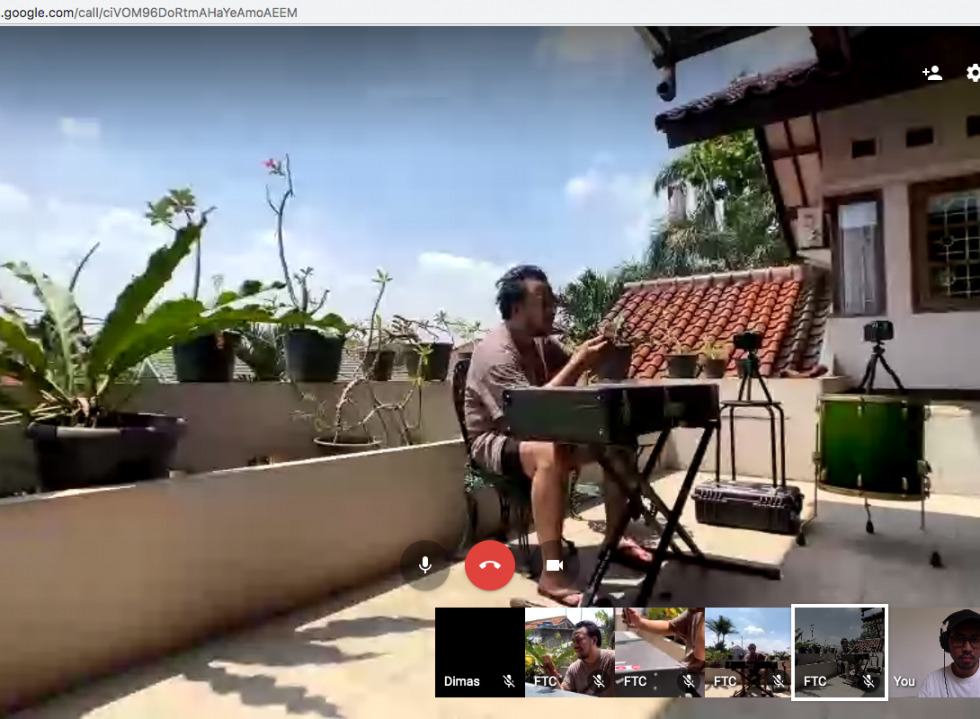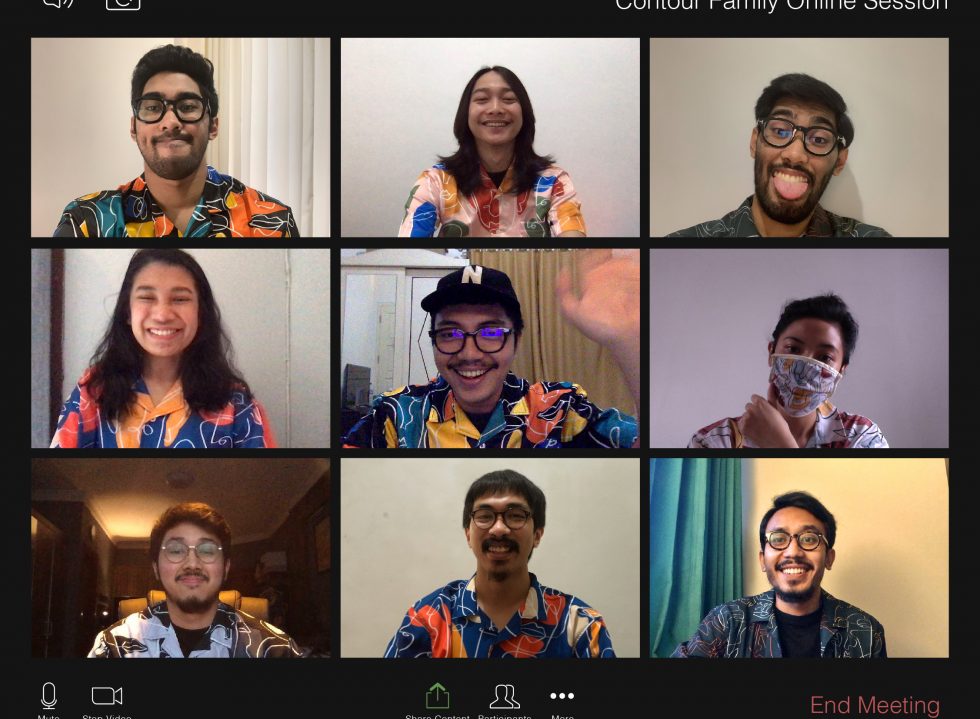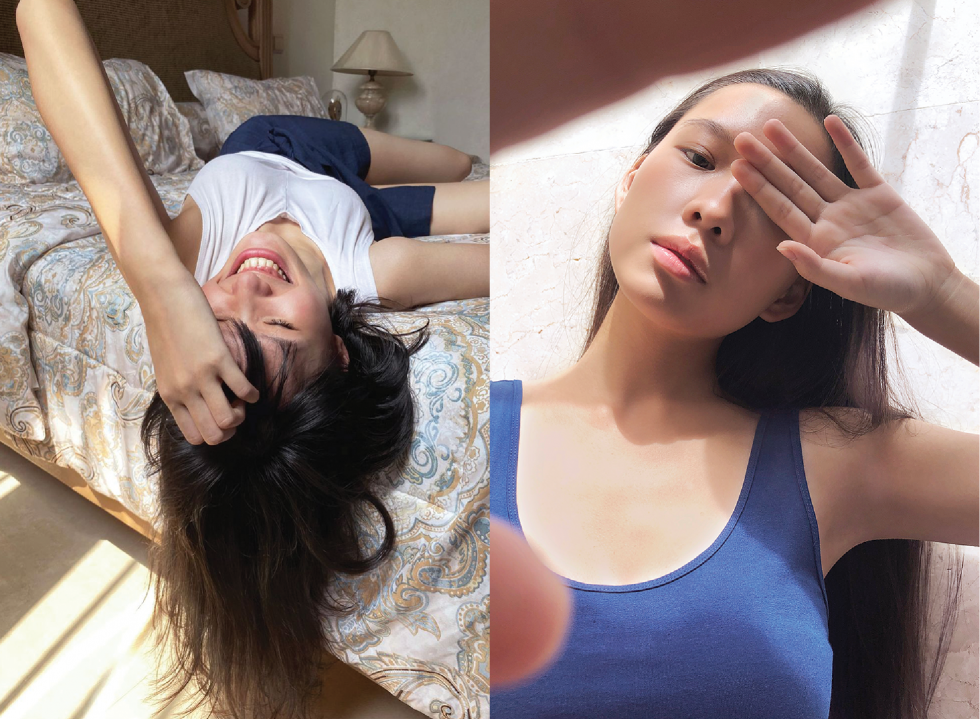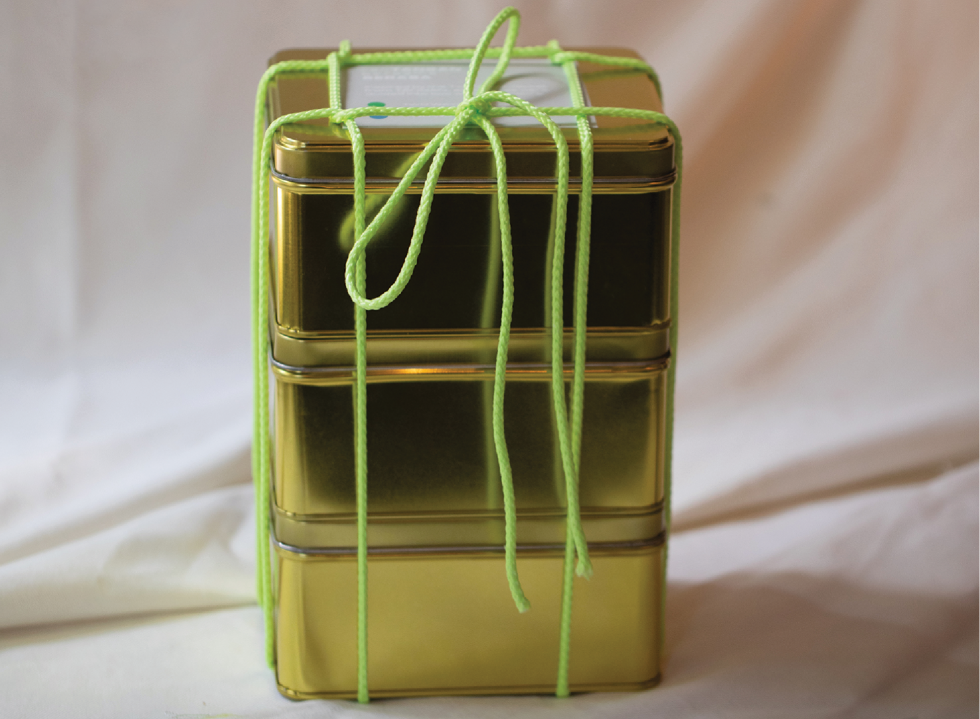In our effort to make social distancing less monotonous, REMOTELY is a special series from Manual Jakarta where we roll out comforting and practical articles to keep you company and motivated during this period of self-isolation.
–
It’s nearly three months since the alarms of COVID-19 were rung, and the world is still in survival mode. For many business sectors, the options are limited: go online or go downward. With such urgency, seeing all kinds of events and activations operating online have been a new normal, and these adjustments have been met with enthusiastic and relatable responses.
With the global-wide stay-at-home order and city-wide social restrictions (the latter is transitioning into the new normal), a spike in the internet consumption is seen: the Instagram application has increased by 61 per cent, followed by Facebook with a leap of 59 per cent, according to an analysis by Kantar on how COVID-19 impacted Indonesians.
Such a rise paved the way for new business opportunities, resulting in brands and digital creators to launch more online contents via websites and social media than ever before: collaborative campaigns, virtual parties, online classes to photoshoots through video calls. In this in-depth, we turn to local brands, establishments and creative individuals who are going against the odds with hopes of survival.
Despite the limitations
“Now is the time to survive,” said Renaldi Perdana Kesuma, CEO of Tenue de Attire, a fashion label focusing on men’s apparel. Having to keep up with speed in the time of a pandemic, businesses are forced to come up with new strategies to hasten their pace, productions and sales.
“We had to declutter the working system that we applied from day one and changed our plans in such a short time.” Aldi’s team has gone through numerous Zoom meetings, something that Aldi remembered as “frustrating, but failing is out of the question.” Yet, the back-to-back virtual meetings have inspired a unique approach in promotion: screencaps of the team flaunting the products in Zoom have become one of their running IG contents.
Throughout the work-from-home period, the brand has been releasing in-house promotional contents for Tenue’s latest collections Contour and Contour Capsule where the team members share their quarantine activities or simply post relatable memes, inciting a rise in engagement with their customers, in addition to the professional campaign photos. “We are proud to say that we have so many increasing content performance indicators during this pandemic, and the sales have also increased!”
The increase in connection between seller-buyer rings true: as reported by NewsCred, Inc., releasing online contents or simply, content marketing has proven to be the most effective way for brands to remain in touch with their customers during the pandemic: “with the ever-changing digital landscape, communicating and engaging with your audience can remain undisrupted—as long as you have the proper content marketing strategies in place.”
Studiorama, a Jakarta-based music collective, label and organiser has released Studiorama From The Crib together with Sounds From The Corner, their first virtual gig which features independent musicians namely Kurosuke and The Panturas. Xandega Tahajuansya, co-founder of the music collective, expressed that they have done something similar prior to the outbreak, but Studiorama From The Crib’s scenario was “unprecedented”, and satisfying their audiences without face-to-face interactions to guide the musicians remains their biggest challenge. “[The trouble] was the technicality of it, including trying to get the virtual collective experience as a worthy substitute to the physical ones, which will always be more immediate and visceral,” he went.
In their endeavour to sustain the local music scene as well as bringing music enthusiasts together during isolation, they now have the opportunity to focus on their digital presence, paving the way for new audiences “who might never stumble upon [Studiorama and SFTC] if the pandemic did not happen.”
The situation resonates with MOOD, a local fitness and wellness studio in the city that halted all their scheduled classes and successfully found a resort in online content. “During the first weeks of the self-isolation period, there was a large number of positive responses and we gained a massive following on our Instagram page! On average, we had around 500 people joining our live yoga and meditation classes on IG,” said Janice Lee, co-founder of the establishment.
Following their ‘free-flow’ virtual yoga sessions, they have also launched ‘Mood Hard Club Family’s Guide to Self-Isolation’, an IG TV series hosted by yoga teachers alike to keep their community close and connected. “With more time for us to focus on creating connections with our followers through social media, we will incorporate a few online events that have been successful, and definitely more engaging contents,” Janice disclosed.
For photographers Michael Cools and Rio Prasetia (better known as Riop), the physical distancing period means bringing their subjects of photography closer to home. For the 34-year-old photographer Mike, art has always been about breaking the boundaries, and his interest towards virtual photography—a concept once ‘foreign’ to him—has made him one of the first photographers to introduce the approach here in the city.
“I saw photographers from abroad doing virtual photoshoots, so I tried to explore [the approach] with my own style. With the current situation, I become even more eager to create, even if it means to do it at home,” said Mike. Ever since he introduced the concept, the responses have been staggering, and to date, his clients for these virtual photography sessions range from personal shoots, makeup brands to ultimately, e-commerce site.
Riop, who extends his love for visuals to filmmaking, perceives virtual photography as something that allows more intimacy between him and his muses. “[Virtual photo shoots] can be a very intimate thing, because [the models] are allowing us into their personal spaces, somewhere we have never been and yet suddenly transported to.”
Being confined at home, the idea of experimenting further with photography came early to Riop, but with the concept deemed foreign to many modelling agencies in the city, his requests were initially met with question marks, “It was when they saw [virtual photoshoots] popping up in Vogue and Instagram that they finally caught on the idea,” expressed the photographer who has worked with many models virtually and looking forward to more.
Collaborating for good
Online collaborative projects between brands have also been the new face of marketing in the age of coronavirus. Through teaming up, brands are keeping their ecosystem healthy and supportive while increasing pipeline generation: all translates to high engagements and growth in revenue. Aussie-based Marketing Mag described this crisis as “a time of collective action […] rather than assuming [collaboration] takes time, CEOs are making things happen. Behaviour is changing rapidly and given what we do influences how we think, this new era of collaboration is unlikely to grind to a halt when the coronavirus crisis passes.”
Tenue de Attire is one among a slew of brands who are actively engaging in collaborative campaigns amidst the coronavirus outbreak. Through their “Serdadu Satu” project, a joint venture with visual artist Hari Prast, the brand aims to support COVID-19 health workers via donation. The campaign was also the first initiative taken by the team during the WFH period, “We ought to do good—to help others even though all of us are striving. I also believe that doing good should be fun!” said Aldi.
A social initiative has also been done by local premium fashion label TANGAN. Their Spring/Summer 2020 recently launched when social restrictions were in full-effect in Jakarta. In these circumstances, founders Margaretha Novi and Zico Halim asserted that the team had to do something more. Then, #berFANTASIdenganTANGAN, a social media-activated campaign was born featuring their friends and community as a teaser to the collection launch, in which parts of the sales are donated to Komunitas Tuna Netra Jakarta Barat.
In tone with the collection, the campaign set forth a buoyant, whimsical mood as the team “felt that the situation and news were getting sombre. So we decided to enact a campaign that spreads positivity through humour to put on a smile on everybody’s faces,” explained Novi. The launch itself could not get any more playful and eccentric: a series of digital games and humorous videos were presented, and among them are the digital versions of the iconic Boneka Mampang and Dunia Fantasi, “We want to fantasise through time, so we recreated it via digital editing.”
To top it off, the campaign is extended to yet another collaboration, #ranTANGANbersamaSERASACoffeetaria. Together, the two establishments celebrated this year’s Ramadan by inviting their audience to fantasise through Indonesian cuisines, or rantangan, as they embrace food as a universal language.
Jakarta-based cultural creative market Semasa has also launched their annual event virtually for the first time since their 2016 debut in Kota Tua. Co-founder of Semasa, Hutomo Joe, said that preparations for the coveted Semasa di Balai Kota were in full force when the postponement was imminent due to the pandemic. “Since large-scale social distancing is enforced, everything goes online. We got in touch with the Tokopedia team and they were excited to support the online bazaar.” This led to Semasa di Tokopedia that went from 15 to 17 May 2020.
Through this collaboration, independent local businesses found a platform to boost their sales in an economically challenging climate. Semasa di Tokopedia proved successful: market “goers” showed enthusiasm that exceeded the team’s expectations as swift transactions after another was made shortly after the bazaar opened: “We launched the bazaar at 12 AM, and surprisingly many transactions were already made two minutes after that!” Joe expressed. Thanks to the collaboration, some tenants experienced significant increases in sales, and the next virtual Semasa market is already in the planning.
Virtually connected
With so little at hand, it takes support from communities for brands and creative workers to keep the boats sailing amidst the waves. And in the face of crisis, the only way to make ends meet is to call forth a collective act, and this chapter is where conscience and solidarity come into play.
“We want to be more emphatic with our contents so we can resonate with a greater audience,” said Aldi of Tenue de Attire, who believes that “if we keep spreading positivity through our platforms, the sales, awareness and other performance indicators will follow, and when you finally see those numbers, you know you are doing the right thing.”
Xandega, who was transparent about the standstill that the music industry is facing, confessed that “[Studiorama] was looking for every possible option to survive, and thankfully we have great friends that have helped realise our ideas including online concerts and merchandises. [Virtual concerts] are one of the things that music enthusiasts can have during this weird time.”
Merging with local musicians alike, the team behind Studiorama have launched an auction-donation program to help the forefront combating the novel coronavirus. “We hope that this auction will also give the musicians a unique connection with their fans that is unlikely to take place during ‘normal’ times,” he closed.
Joe of Semasa is equally optimistic that everyone is emotionally bonded by this collective crisis, and by launching their first-ever virtual bazaar, he believes that “getting people together will create a stronger connection between us. However, during this unprecedented situation, we need to adapt to the new normal, hence this opportunity.”
